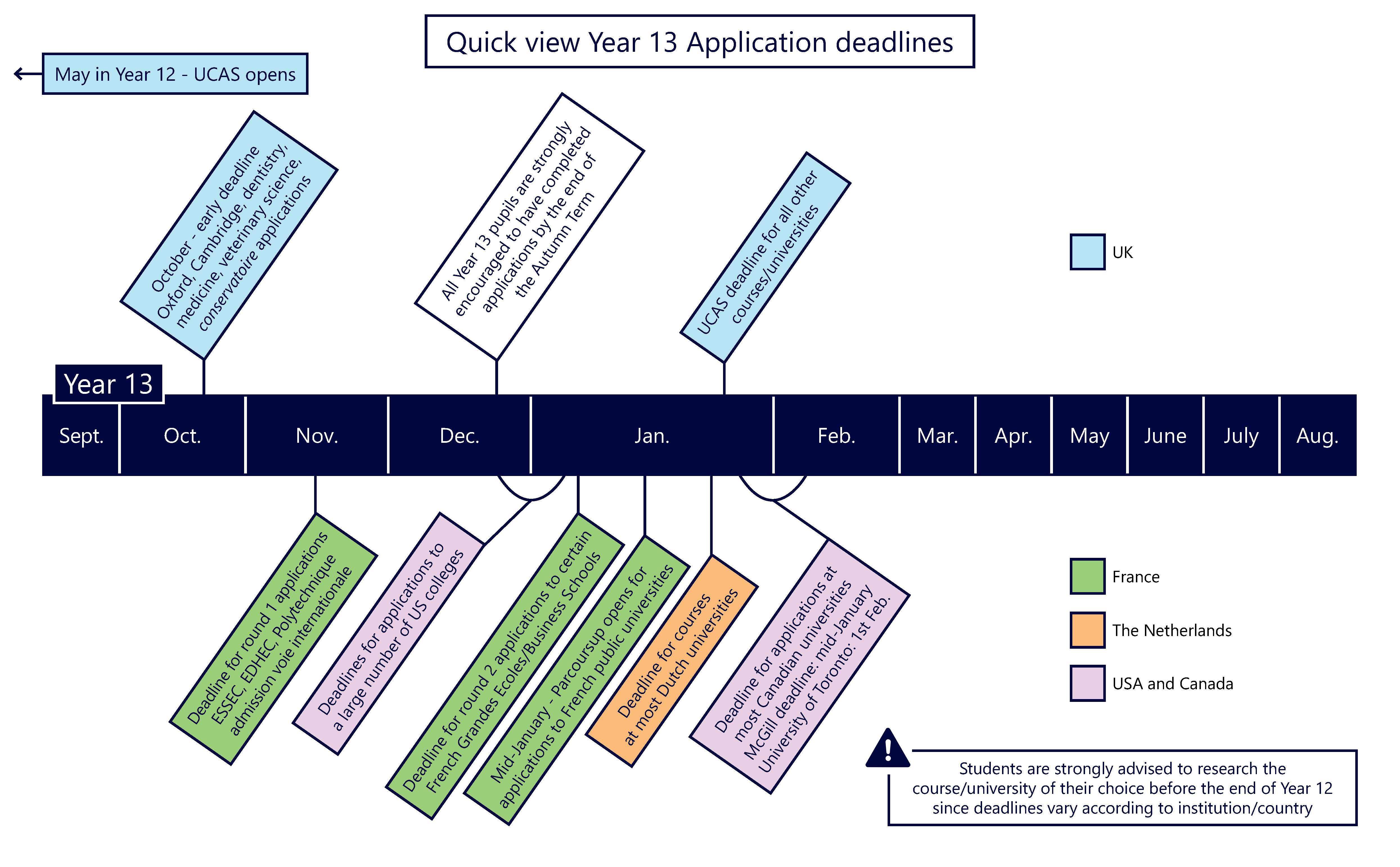6student guide th Form





Y ears 12 and 13 make up our Sixth Form. These final years of study at school form both an essential and exciting component of life at The British School of Paris. We pride ourselves on accepting and working with students from all academic backgrounds and developing young adults who are committed, selfmotivated, who have a sense of purpose and a determination to succeed.

The Sixth Form offers an opportunity to maximise academic potential, get involved in school life through volunteering and co- curricular activities as well as to develop in a friendly social and multicultural environment.
Students are taught to be self- disciplined and to take responsibility for their own learning and development, whilst always being fully supported on an individual basis through the important transition into the Sixth Form and then onto the next step be it higher education or employment


 Nicholas L
Nicholas L
Sixth Formers move from pupils to becoming students in the school, a small change in status but one that carries both freedom and responsibilities. Students are treated as young adults and are encouraged to explore both who they are as individuals and wha t role they play in both the school community and wider society.
The purpose of this guide is to explain how Sixth Form life differs from that in other parts of the School. The information within it has been designed to illustrate some of the opportunities available and to provide valuable insight to help you succeed in studies and benefit from the many opportunities that await you in the Sixth Form.
A comprehensive team of professionals including the Head of Sixth Form, Head of Welfare, Heads of Years, a dedicated team of Tutors and Head of Careers are in place to encourage success and provide the best environment for students to explore, develop and strive for academic excellence, whilst at the same time preparing you for the independence and challenges of the world outside school.
Universitat Internacional de Catalunya.
“Currently I’m in my first year of Dentistry in Barcelona, at Universitat Internacional de Catalunya. About half the degrees here are related to healthcare, so if that’s particularly what you’re interested in, make sure to have a look. The campus where I study is directly integrated inside a hospital; from day 1 we have opportunities to study anatomy from patient donors and learn in a clinical setting. While the course and rankings are important, choosing where to study shouldn’t be purely determined by these. It’s where you’ll be spending several years, so considering quality-of-life factors are crucial to having a healthy learning environment. Having visited a few times, I’ve always felt a strong attachment to Barcelona as a city. Now I’ve come to really appreciate its consistently good weather, (relatively) affordable lifestyle, and efficient transport system. The options of studying in Spain are varied, and the universities are increasingly welcoming towards foreign students. While having a basic knowledge of Spanish is an advantage, there is a growing number of courses being offered in English and even French. For courses in Spanish, they generally ask for a B2 level.
When researching courses, there are a few things you should keep in mind. Neither public nor private universities are “better” than the other, it depends on your course. That said, public universities tend to have higher grade requirements. If you’re looking at regions with co-official languages alongside Spanish, don’t hesitate to ask universities what proportion of the course is taught in each language. Each professor can decide which language they prefer teaching in; this can depend on how many students are from other regions. For written and oral assignments, you always have the choice to use either language. There are certain admin steps that can be confusing, namely applying for UNEDasiss Accreditation, for which I strongly recommend that you do this through an agency that knows exactly which documents are needed, and if they need to be translated. In Spain, there is no centralised application system: you apply for public universities through the regional platform, while private universities each decide their own procedures. Try to narrow down to three or four courses at most.”
We welcome students from all over the world into our Sixth Form and this makes for a wonderfully rich learning environment. We strive to produce young adults who will make active and positive contributions to society across the world. In order to achieve t his we work hard to ensure that all aspects of Sixth Form life and the resultant environment are modelled on the school motto and values.

The School’s motto Validus Corpore, Animoque, or Strength in Body and Mind is a fine sentiment for a place of learning which seeks to help stretch students to challenge themselves both academically and socially.
Our school crest gives a graphic expression and embodiment of our values as a school. These values serve as an indication of our purpose and we, as a school, are at our best when we are mindful of this. At the top of the crest is the victor’s crown, a symbol of excellence and with it integrity.
The two supporting lions bring to mind the values of determination and endeavour, qualities that see us recognise achievement and the will to strive when times are tough.

The galleon, symbol of our host city, reminds us that we seek to learn with a spirit of discovery and that we appreciate the opportunity of learning within our vibrant community, in France and beyond.
The Fleur - de- Lys points us in the direction of both community and service, concepts from which we learn and benefit.
Together these values reflect high expectations which, when learned and embodied by our students, ensure that all those who are educated at The British School of Paris are best placed to serve as upstanding members of and positive contributors to society.


Our philosophy throughout the school is to provide a high- quality British Education. We strive to ensure a focus on the individual. Our objectives in the Sixth Form include:

Experience shows that the single most important factor in Sixth Form aspirations is excellent examination results and so we strive to ensure that each individual student achieves the best possible grades he/she is capable of attaining.
Students arriving in the Sixth Form may have had very little experience of organising extended pieces of work over longer periods of time or of taking class notes which then need to be processed and reflected upon. Post school these are skills that will be very important and so upskilling students to organise, manage, work effectively and meet deadlines is critical.
As Sixth Form students approach adulthood it is very important that they realise the value of being socially aware citizens, ones who are valuable to society and fully aware of the implications of actions taken. A large focus in Personal Social, Health and Economic Education is placed on your standing and your role in the school, local and global communities.
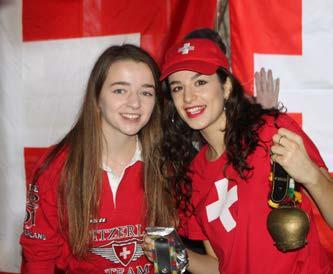

Students will not learn if they are not happy and we feel that it is our duty to know each student individually, both where they have come from and their future aspirations to ensure that the pathway through Sixth Form is a positive one in a happy, safe and healthy environment where the above aims can be fully met.


Ceylin U
“I joined the BSP in Year 10, and now I am in Year 13. I study Maths, Biology and Drama A Level, and I also do EPQ. I am going to study Business Management in England after graduating. The transition to sixth form was intimidating at first, but through the support of teachers, I started discovering the positives of being a sixth former. The freedom we are given allows us to coordinate our own studies in school, and sixth formers are given opportunities to be involved in the school community, outside of academics. As a prefect, I especially enjoy organising and carrying out in school fundraising events and activities.”

 Anisha T
Anisha T
Currently studying: Journalism BA at the University of Leeds

A-Levels: English Language and Literature, Drama and French
Application process: “The application process for my degree was quite straight-forward. I had to write my personal statement, and based on what I had written, some universities decided if they wanted a more in-depth interview or not. One of the universities that I applied to, Leeds Trinity University, decided they wanted an interview (which happened over the phone, because of Covid.) Before the interview, I was asked to complete a ‘news exercise’ where I was given information to read, and I had to write an article about it. During my interview, we discussed my news exercise, and she told me what I had done well. We then spoke about why I wanted to study journalism, what hobbies and extracurricular activities I do that would be beneficial for my degree, and then the interviewer told me a bit about the course, and what my degree would actually entail. I applied to the University of Leeds, Goldsmith’s, Birkbeck, City University of London and Leeds Trinity University. Every university is different, and different courses can have different application requirements for the same course, which may seem daunting, but the universities and the interviewers aren’t trying to trick you. All the information that you need will be presented to you, and you’ll be given enough time to prepare for any interviews. Furthermore, not every university requires an interview, and most are often satisfied with the information you provide in your UCAS application, and in your personal statement. Having applied to universities that wanted interviews, and universities that didn’t, I can say that one is not more stressful than the other. Interviews are useful because they allow you to gauge what the university is like, and it makes the process more humane, but also interviews can add more stress to an already stressful experience.
Post BSP experience: I think the main thing to realise, no matter which university you go to, or what you choose to do after the BSP, is that you do gain a lot of independence, extremely quickly. The teachers at the BSP guide you through the entire UCAS/university/post school process, which is not the case when you get to university and have to start applying for study abroad years, placement years and internships. That said, it is exciting to join a bigger environment, and to share classes with a higher number of people than at the BSP. Ultimately, everything will be fine, and you’ll eventually figure out what you want to do and who you want to be, even if it feels like you don’t know yet.”
A week in my uni life:
Effective learning and an enthusiastic approach to study are pre-requisites for academic success.




A levels are the most widely taken 16+ qualification in the world. For many universities they represent the “gold standard” and a good set of A level results will open access to the world’s most prestigious universities. A levels allow you to develop a detailed understanding of a subject and permit you to follow your academic aspirations.
Students study three or occasionally four A levels. Alongside your studies, you have time to engage with the co-curricular programme and develop as far as possible. University selectors and employers want excellent A level results and fully developed character.
You will find that success in the Sixth Form begins with and is supported by positive relationships in school. It is important that you approach interactions with all staff and students in a mature and considerate manner. Respect for and trust of the environment and those around you is vital in ensuring that the best learning environment is created for all.

In the Sixth Form you will discover that the number of commitments you have will multiply. In addition to your heavy academic workload, you may also find yourself involved in sport, drama, music, in prefect duties and in a variety of other activities. You could also expect there to be an extension of your social life. All of these will make significant demands on your time.
From the start of Year 12 you should establish your priorities, as you cannot do everything well and academic study must always take precedence. Balancing academic, co-curricular and social activities can be a challenge. Effective organisation with the support of the Sixth Form Team, will prove invaluable. Pace yourself - sensible planning is essential. Do not leave assignments until the night before; work is set well in advance so that you can plan ahead and manage your tasks. Set yourself targets that are challenging but attainable; develop a routine that allows you to meet them. Build in time to review the work that you have done previously, and keep your folders organised. This investment in time will pay off when it comes to revising for exams; at the end of Year 12, for January mocks in Year 13 and, of course, at the end of Year 13 too.
Your tutor is ideally placed to support you with this.
As a student you should be thinking about your subjects outside lessons as a part of your independent learning. In the Sixth Form, work in c lass with your teachers is the minimum required and must be developed in your own non- contact time. You must read around the subject, pursue individual research and continually review all the work you are studying. We expect at least 5 hours of independent work per subject outside lesson time every week. Keeping a balance between all subjects is key.
Effective learning and an enthusiastic approach to study are pre-requisites for academic success. Many of these learning skills will be unfamiliar to you but the Sixth Form Team will work hard to help you master these techniques. The faster you develop goo d study habits, the more effectively you will learn, the more enjoyable your courses will become and the better your final grades will be.
It is important that students who are mature, responsible and considerate should be allowed certain privileges and encouraged to take responsibility for their own study programme. We want you to use the Sixth Form as an opportunity to move from the more formal lower school regime to the freedom and responsibility of the post school environment as smoothly as possible. On joining the Sixth Form you change from being a pupil to a student in more than name only.
As a Sixth Form student you will have periods of noncontact time available for private study. During these times you will be increasingly responsible for your own learning and helped to develop independent thinking and self- discipline where necessary. St udy periods should be used effectively for preparing reports and essays, reading, research, completing coursework and preparing for tests and examinations. You will certainly not make the best use of your study time if you view it as “free time” or “time off”. In some cases you will be asked to leave the school to study at home.
To support you in your studies there are a number of facilities available to the Sixth Form. There is a fully equipped library, two Sixth Form Study Rooms and a space to relax.
The Library is open from 8.30am to 5.30pm from Monday – Friday and Sixth Form students have access to this area during non-contact periods. The library is primarily used to support curriculum studies and reading for pleasure. The Librarian is at your disposal to help with your individual needs.
The Study Rooms offer students quiet and comfortable places to work and to hold Sixth Form meetings. They are solely for the Sixth Form and are managed by the Head of Sixth Form.


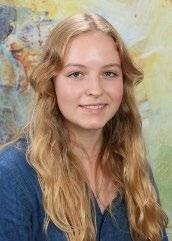 Sophie S
Sophie S
“
I’ve been part of the BSP community since Year 10. Something I enjoy about being in the Sixth Form at this school is the freedom of communication within the school - I am able to have mature conversations with teachers that I could not have had before Sixth Form. Alongside this, we are granted more freedom and treated like adults, whether that be in class or out. After leaving, I’m planning on studying ancient history and archaeology in the UK, having applied to English, Scottish and Welsh universities. Some advice I would give to upcoming Year 12s would be to study from day one, taking legible notes so that your Year 13 self will thank you.”
The PSHE programme covers advice on:
• time management and motivation
• memory improvement techniques
• reading for different purposes
• effective note taking
• revision

 Zahed AK
Zahed AK
“I joined The British School of Paris in 2017 and immediately felt very welcomed by both teachers and students. What I’ve liked the most about the Sixth Form is the fact that I can now be more independent. I try to use my study periods for work which has definitely helped my organisation. After Year 13 I will study law in the UK. My advice for a Year 12 student is to make sure you are organised. From the start of Year 13 you need to find some time to revise the topics studied in Year 12. Balance the amount of revision you do for both years - do not leave all the revision for just a few months before the exams. The Sixth Form workload is considerable and you will not have time to revise everything if you start late...”

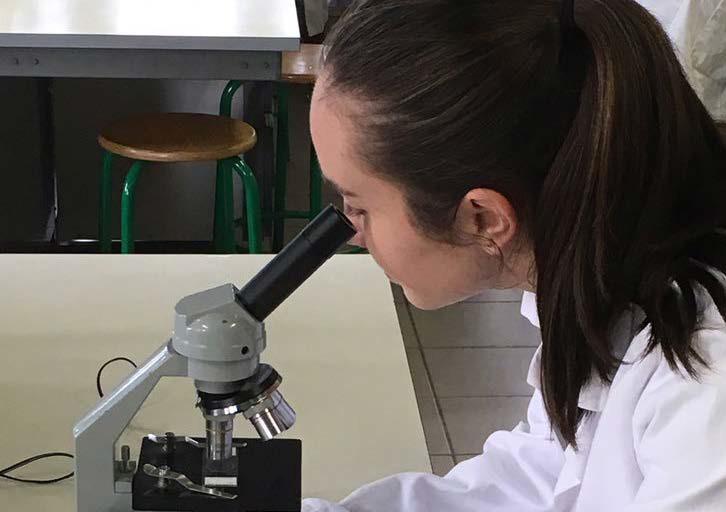
The Sixth Form team is here to encourage and provide the best environment for you to strive for academic excellence, whilst at the same time preparing you for the independence of university life and the world outside school. We aim to encourage success, assist, support and guide university applications and all other post BSP plans.
The Head of Sixth Form is the person who ensures that the Years 12 and Year 13 are as effective and fulfilling as they can be. The Head of Sixth Form has overall responsibility for the day to day running and can support learning. The Head of Sixth Form can advise on academic and pastoral issues.
The Head of Sixth Form heads the Sixth Form Team and has an overview of all Sixth Form activities. Liaising closely with the Heads of Welfare, Teaching & Learning and Activities. The Head of Sixth Form will ensure that all BSP Sixth Formers have the opportunity to flourish.
Works closely with the Sixth Form Team to ensure a clear pathway to achievement is set, manages the Student Council and manages integration from Year 11 to Year 12. The Head of Welfare meets regularly with the Sixth Form Team to ensure any welfare issues are addressed swiftly.
Liaises regularly with the Sixth Form Team to ensure that academic standards are met, that we offer courses of an appropriate nature and level for Sixth Formers. The Head of Teaching and Learning manages all timetable and option matters.
Ensures that our Sixth Form have the activities available to develop fully rounded individuals
Working with the Sixth Form Team the Head of Activities is able to react to student performances and plays an important role in providing memorable experiences outside of the classroom.
The overall responsibility for delivery of external exams and public exams such as GCSE and A level. The Exams Officer is also the person you will speak to on results day!
Liaises with the Sixth Form Team when required. The Head of LS is responsible for ensuring that specific learning needs are met and recognises academic support or intervention when necessary. The Head of LS also liaises with the Exams Officer regarding access arrangements.
Finally, the Heads of Year manage potential areas of difficulty such as the transition from Key Stage 4 and the move from Year 12 to Year 13, along with new admissions and, if deemed necessary, suspensions and expulsions, in full cooperation with the Head of Pastoral Care.
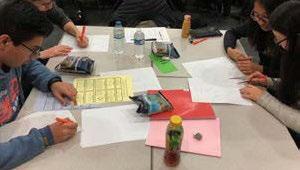
Are experts in Post-16 Education and are able to guide students through the new demands that they meet in the Sixth Form. Tutors monitor progress and advise students when setting targets, offer guidance and help students achieve a sensible balance between study requirements and other demands. Tutors are the first port of call for students’ needs.
Manages careers guidance for all tertiary
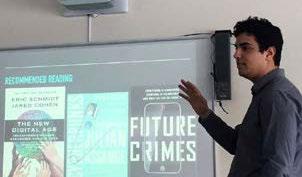
institutions and moving on to a career. He is available by appointment for individual advice and manages general guidance within the PSHE programme.

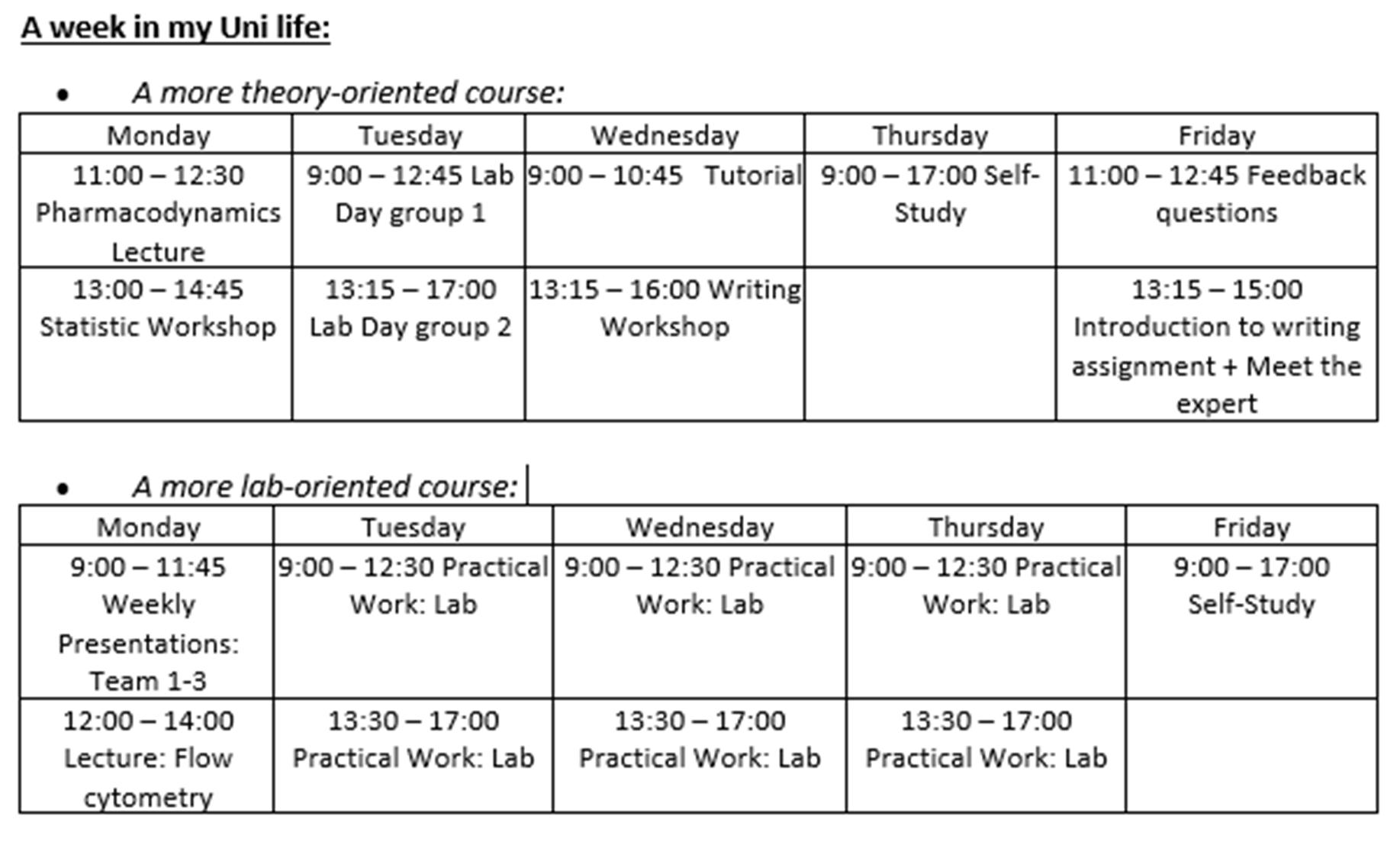
 Carla S
Carla S
The aim of a Careers Programme is to give you as students in Years 12 and 13 the skills to make informed choices, manage your progression through learning and help prepare you for working life.

The vast majority of our students move on to Higher Education, or some form of Further Education, before progressing on to a career. Typically, around 70% of our students go to the UK, but students also move on to a wide range of international locations: France, Spain, Italy, Switzerland, Belgium, Holland, USA, Canada, Africa, Australia and Asia have been amongst recent destinations.
We pride ourselves on the fact that our students make informed decisions concerning their future choices, whether this be to continue onto university, or a non- university pathway. Our students enjoy great success in obtaining places at their first choice universities, with a majority of these top ranking institutions around the globe. It is worth noting that some of our students choose not to go to university, instead selecting to move onto courses of further education that provide different levels of qualification; previous courses chosen include Childcare, Theatre and Foundation courses in Art. Furthermore, a small number of students prefer to take a ‘gap year’ before making the decision of what to study post- Sixth Form; students generally seek to gain more work experience during this time, combined with a period of international travel. Whatever your ambition, we are here to help guide you towards making the right decision.
In order to help you with your decisions and to guide you through the whole decision making process, the Sixth Form Tutors, the Heads of Year, Head of Sixth Form and the Head of Careers will work with you throughout your Sixth Form. In addition, our school uses the services offered by external Careers consultants. We feel that this gives you and your parents an idea of your ability, interests and possible career options. Consultants liaise with the Head of Careers and visit the school on a regular basis.
Thanks to their outstanding results, 90% of our university applicants gained confirmed places at their first choice universities.
30% of BSP students have chosen universities in the US, France, Spain, the Netherlands, Australia and South Africa. The 70% remaining will continue their education in the UK.


 Radhu C
Radhu C
“I've been at the BSP since Year 11, and I initially joined so that I could do A-Levels, as I wanted to specialise in a few subjects rather than keep working on many.
I enjoy the freedom that we have in the 6th form, and how we have many opportunities given to us to excel both extra curricularly, and during each of our subject lessons. I'm planning to study mathematics after my time at the BSP, and I have received amongst others, offers from Bath and St Andrews' universities in the UK and Polytechnique in France. My advice for a new year 12 would be to make the most of 6th form and stay ahead of work, as it can be either the most rewarding or stressful time of your secondary education, depending on how you treat it. “
UK Uni Non- UK Uni
Events held during the Autumn Term
• Year 12 course – ‘Introduction to Sixth Form’. This takes place just before the start of the Autum n Term
• Profiling Tests and Interviews for new Year 12 students
• Helping suitable students with Headstart Applications
• PSHE Careers programme begins
Events held during the Spring Term
• The University Road Show. A Group of Representatives from British Universities visit our school. This takes place just before or after the Easter Break

• Visits from representatives from other universities
• Launch of ‘Post 18 Choices’ Programme for students
• Infor mation evening for parents
• Foundation Year students support for future choices
• ‘Fast-track’ programme for Oxbridge, Medicine & Veterinary Science begins
• Visiting speaker talks
Events held during the Summer Term
‘What’s Next’ Course:
• A two day workshop based guidance and advice programme that covers a range of subjects from ‘Interview Practice’ through to ‘Studying in the US’. Highly interactive and up to date, the course ends with students starting their post- Sixth Form applications, focusing on the UCAS Apply system for universities in the UK
Work Experience:
• You are required to organise your own experience (essential for University Applicants). Our school helps with the relevant paper work. In some cases we can help with contacts. You are encouraged to get as much work experience as possible. In fact medical related subjects require at least two work experience placements. Our School Insurance covers all work experience covers all work experience
• Be sure to research different courses available around the world and note their individual application deadlines
Events held during the Autumn Term
• Year 13 Course – ‘Expanding Horizons’. This takes place just before the start of the Autumn Term. This programme continues to develop students’ applications and decision making confidence
• Application Clinic held during PSHE lessons
• ‘Fast-track’ university applications submitted (by 15 October Oxbridge and Medical)
• University Admissions Tests (early November)
• Recommended closure of ‘Predicted Grade’ adjustment period by mid- November
Events held during the Spring Term
• Final completion of students university applications (Final applications deadline 15 January for UK) Mid January for certain Dutch universities but mid April for most Dutch universities
• Mock interviews, before each actual interview
• PSHE Careers focus on ‘Transition from Sixth Form Life’
Events held during the Summer Term
• Your Final Choice - advice and reassurance
• What to do when the examination results come out
• The Clearing Process/Adjustment Process
• Continued consultation re: University/Career choice
• Senior members of staff are available until all outstanding university problems are resolved
• It is also worth noting that we will continue to offer support to ex- students, until they have finally secured a career or higher education position that meets their requirements and expectations
Our students aspire to prestigious courses at renowned universities

You are about to embark on the most exciting stage of your school career. As you approach the end of compulsory education, you will need to think carefully about the subjects you wish to study in the Sixth Form. The Advanced Level programme we offer leads to university entrance worldwide. The courses are all designed for specialists and are therefore excellent preparation for the rigorous demands of top-class universities.
A Level is recognised around the world and provides access to universities in France, the UK, Europe, Africa, South America, North America, etc.

At The British School of Paris we are extremely proud of the academic successes of our students. For several years we have had a strong pass rate at Advanced Level, with up to 75% of students receiving grades A*, A and B. Our results compare favourably with schools recognised for their excellence in the UK and are a tribute to students who have often moved many times in their educational career.

We offer a large variety of subjects to Advanced Level:

• Art and Design: Fine Art
• Biology
• Business
• Chemistry
• Computer Science
• Design and Technology
• Drama and Theatre Studies
• Economics
• English Literature
• French
• Geography
• German
• History
• Mathematics and Further Mathematics
• Photography
• Physics
• Physical Education
• Politics
• Spanish
We also offer support and extension possibilities. Extension opportunities include EPQ (Extended Project Qualification) and a Level 2 Certificate in Further Mathematics.
Life in the Sixth Form is not just about academic programmes and success.

Sixth Formers play a crucial role within our school community and have the opportunity to contribute to school life in a variety of ways. Becoming an active and responsible member of the school community helps our students to grow and provides an excellent experience which can serve you well in later life. Making the most of opportunities in the Sixth Form is now seen as an essential part of a successful university application.
Year 12 students are invited to apply to become school prefects. Those chosen serve a year’s prefectship from April to April. Prefects assist in the smooth running of the school day and are a link between pupils and staff. School prefects assist tutor groups lower down the school and can be turned to by younger pupils for advice. On an individual level prefects run projects in areas they have identified in the school to help develop the school environment.
• Head Prefects
The Head Boy and Head Girl are key figures within t he school, they help to organise Sixth Form life for their fellow students and have weekly meetings wit h t he Headmaster and Head of Year 13 to discuss Sixt h Form matters. The Head Boy and Head Girl manage the Prefect Body which is divided into sub groups:
• Charity Prefects
The Charity prefects link with similar prefects in each of the tutor groups throughout the school to organise whole school and year group specific events. They promote both local and international charities.

• Events Prefects
Events prefects work with the Heads of Year a nd t he school to organise and run both whole school and year group specific events for the different year groups. These events foster school cohesion and a sense of belonging.
• House Prefects
The House Prefects’ role within the School is t o organise and run events in which the whole school can participate. The House Prefects liaise with all
members of Staff, other committee members and pupils to ensure that the activities run smoothly, holding weekly meetings in the run- up to specific events.
• Academic Prefects
Students are given the opportunity to mentor other students in the senior school. This brings great benefit to both sets of students: one receiving guidance whilst the other improves his/her skills in communication and empathy.
• Pastoral Prefects
These students help to settle our new pupils; helping them understand school procedures and answering their questions about school lif e.
The Sixth Form Council is a leadership group which represents the interests of the sixth form student body. The aim is to ensure that sixth form students enjoy elements of autonomy within their school life and that these are student r un.
The Sixth Form Council is an integral part of the sixth form community and members are elected by their peers to represent the interests of the sixth form student body. The Council is composed of 2 class representatives from each of the 6 Tutor groups, 2 prefect representatives and the Head Prefects. Council meetings occur half-termly and are led by the Head of Year 12 and the Head of Year 13.
- Uniting the S ixth Form group: The S ixth Form is an amalgamation of two year groups and includes new students joining the group. It is the role of the Council to ensure integration and harmony exists within the group, that all students are respected as individuals and that all are given an equal voice within the Sixth Form body.
- Acting as the S ixth Form student voice: Council members are ‘go to’ people for the sixth form student body to communicate ideas to the sixth form team. Likewise the sixth form team will actively seek the o pinion of the Council whenever the views of the students are required.
- Taking charge of common areas: The council is to ensure that common areas are cared for and that behaviour in these areas reflects both the expectatio n of the school on senior students and an environment which is welcoming for all.
- Arranging social events: Council members are responsible for suggesting and arranging social events each term for the sixth form students. Events include end of term parties and the Leavers Ball.
- Organising charity events and fundraisers: Charity awareness is a large part of school life and the sixt h form are encouraged to be leaders in this regard. The council is encouraged to identify a charity of choice and set certain aspirations or charity goa ls for the year. They should then work with the entire sixt h form to raise awareness of the plight of others bot h locally & globally.
• Volunteering
Volunteering and charity work at the BSP – “an exchange of time for an experience”
The volunteering and charity opportunities give students the chance to widen their learning outside the classroom. The world beyond the gates of the BSP is rich and diverse; volunteering teaches young people the lasting value of giving time to others. Our volunteering programme is not about having something to write about on a CV, it is about developing a positive attitude to supporting the wider community and about understanding the importance of service before self.
“Whether there’s a particular cause that’s close to your heart, or you’re just keen to meet some new people, get out of your comfort zone and try something new. I would encourage students facing the big decision of “what next?” over the coming years to start by giving some of their time to others. The truth is, volunteering is never one- way, it’s an exchange of time for an experience, an interaction or enrichment and you never know where that could lead you.”
Georgina Connors (BSP alumna 2012-2016)
Students also take part in volunteering in the local and school community. Students are actively encouraged to involve themselves in humanitarian causes with organisations like Emmaus and the Red Cross on a regular basis. As well as being involved in gardening projects, Sixth Form students work with a local school for disabled children providing sporting and social interaction opportunities.
Students may also volunteer to help in classrooms at the Junior School, either with pupils on a one-to-one basis or with group activities according to the class teacher’s requirements.
The Charity Committee organises fund raising events such as the Jeans for Genes Day, Children in Need or Love in a Box, enabling students to become more socially aware and raising money for a variety of charities.
Sixth Formers on the events committee organise social events for their fellow students to mark different occasions throughout the year: Halloween P arty, Back to School Sixth Form BBQ, Annual Talent Show and often a formal Sixth Form Ball.
The BSP has so far raised over 30,000€ to build and fund the running of a school in Cambodia over the next three years. The Sixth Form are very much at the forefront of this campaign to raise money and awareness so we can help educate some of the 59 million children who have never been to a primary school.

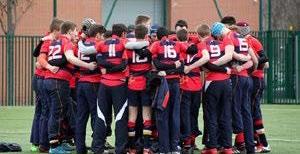
The value of individual extension work within the overall Sixth Form package has long been recognised and with the student’s personal statements being an important part of the UCAS application procedure such extension work has real value.
You can enjoy a wide variety of lunchtime and after- school extra-curricular activities at The British School of Paris. The programme varies from term to term.
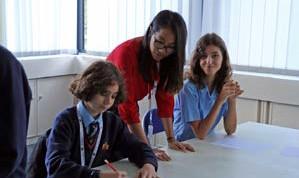
• Model United Nations
• Duke of Edinburgh International Award
• Young Economist
• Mathematics Competitions
• Drama Production
• LAMDA Public Speaking
We offer a chance to listen to a range of inspiring speakers from our community. These speakers are chosen because of their advanced knowledge and experience across a variety of topics. The speaker programme is updated regularly to ensure that that the talks target current world events and allow development of knowledge across a broad spectrum.
Available through the school include:
• Cross Country
• Football
• Hockey
• Netball
• Rugby
• Volleyball
The lively Music department offers: Choirs, Orchestra, smaller diverse groups and Peripatetic instrumental lessons for you to pursue your individual musical speciality. In addition the ABRSM and Rock School exams are available. These exams, from Grade 6 upwards, carry UCAS points
• Fitness
• Weight Training
• Climbing
• Zumba
• Basketball
• Badminton
• Examination in March or June
• Taught in class time
Ensemble performances (ABRSM)
• Offered by ABRSM at three levels, Primary fo r grades 4- 5, Intermediate for grades 6-7 a nd Advanced for grade 8
• Ensembles can be any number and combination of instruments
• Examination in June
Solo performance (ABRSM)
• Overseen by one of the peripatetic instrumenta l t eachers in a weekly specialist lesson on a 1:1 basis, you have time built into your week to rehearse and practice with a pianist/accompaniment in pr eparation for the examination
• The aural training component of the examination is taught during class time
• The sight reading elements are covered
• Any technical requirements, scales/improvisations are also taught
• Viva requirements are covered if necessary
• Leads to a qualification from grade 1 to Diplom a level and UCAS points can be claimed for Grades 6-
• 8 when applying for a music course at university
Popular Music Theory (Rockschool) covers:
which may be used towards any Music or Performing Arts related courses at university.
The Music department offers extension and enhancement opportunities throughout the school in the form of Practical and Theory music examinations outside normal curriculum time. In the 6th Form we offer the following within curriculum time:
• Solo performance in pop, rock or classical styles

• Ensemble / group performance
• Theory of music for both commercial and classical musicians
Students select from the various components on offer to build a programme individual to their needs in Year 12 and onwards into Year 13 if so desired. Courses co uld be tailor- made and might lead to qualifications with the ABRSM or Rockschool exam boards; options include practical and theory examinations and may even lead to an ABRSM Performance Diploma for some candidates.
All these activities are certified and accredited either by ABRSM or Rockschool and the following information gives a brief outline of the various possibilities which are on offer:
• Grade 5 is a pre- requisite exam before going onto grades 6 - 8 practical examination
• Grades 6, 7 and 8 cover material at a standard equivalent to A Level
• Grades 6, 7, 8 exams attract UCAS points for music courses

• Commercial notation, tabs/chord symbols
• Instruments other than your own
• Arrangements for brass/wind groups
• UCAS points for Grades 6- 8 if applying for a music course at university
Solo and Group performance (Rockschool)
• Group performance depending upon the instrumental strengths of the students opting into the scheme; solo performance available from beginner / debut level up to grade 8
• Music Practitioners Qualifications offered by Rockschool for dedicated and enthusiastic musicians
• This will be dependent on the number of students taking music as an option in the 6th form, the type of show chosen and the skills required for the accompanying band in the show.
For classical musicians - www.abrsm.org/en/our- exams
For commercial/rock or pop musicianshttp://www.rslawards.com/music
The library is open to students daily at the following times:
Monday - Friday 8.30 am – 5.30pm

